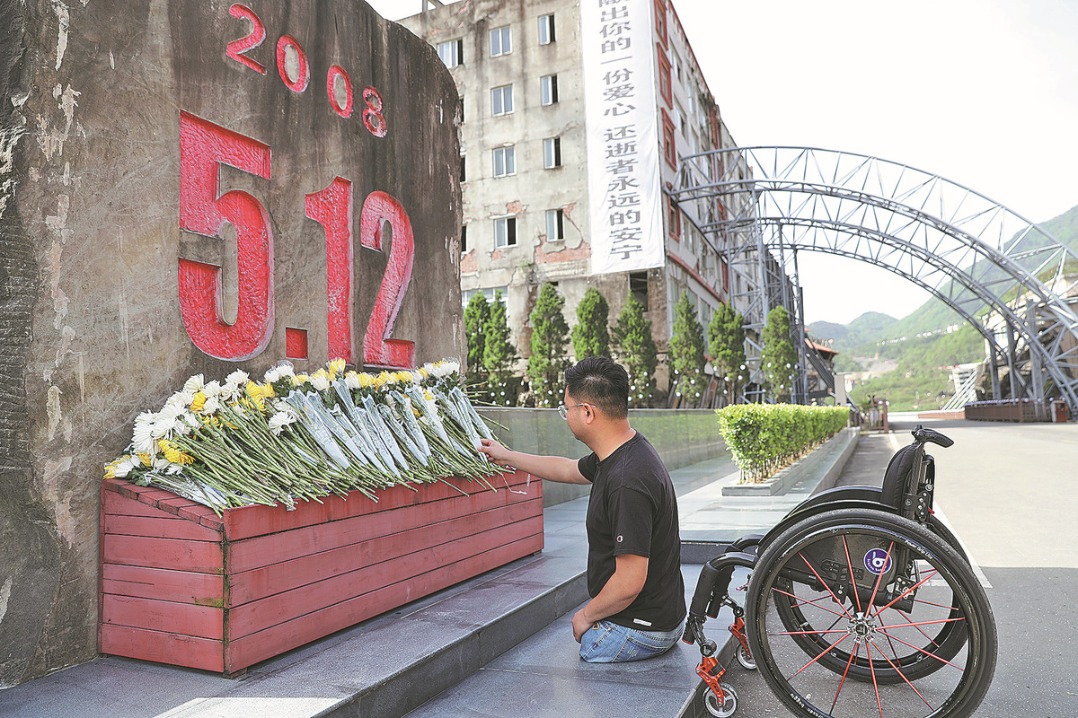Quanzhou steps up 5G use for better lives
By CHENG YU in Beijing and HU MEIDONG in Fuzhou | China Daily | Updated: 2022-12-01 09:54

Technology has continued to become critical amid the COVID-19 pandemic, but many seniors and those with disabilities still feel left behind by the fast-changing technology.
However, things are quite different in Quanzhou, Fujian province, as a batch of 5G-enabled smartphones designed specifically for the elderly and people with disabilities were given out for free to these demographic groups in Quangang district.
Driven by superfast 5G, the elderly and people with disabilities can press a button to call services including home care, emergency rescue and remote positioning without having to learn the complicated functions of mobile phones.
Such benefits were part of the Quanzhou government's broader efforts to leverage 5G to offer care services for vulnerable groups and to drive the application of 5G into sectors like healthcare, industrial, transportation and education.
China officially kicked off 5G commercialization in 2019 and the same year, Quanzhou was named among the first batch of cities to promote 5G commercialization in the country.
"The city has been striving to develop the digital economy to support high-quality development. Over the past few years, the application of digital technologies continued to expand, while information infrastructure continued to get a boost," said Cai Zhansheng, mayor of Quanzhou, earlier this year.
To keep up with the ever-present opportunities, Quanzhou launched a three-year development plan from 2019 to 2021 to drive the digital economy as well as a specific plan to promote 5G construction.
Since the beginning of this year, the city has poured over 1.03 billion yuan ($144 million) into 5G construction and has built 6,088 new 5G base stations.
Through building 16,000 5G base stations in total, the city has successfully established 5G signals covering central districts and towns, important parks and hotspot areas.
Wu Hequan, an academician at the Chinese Academy of Engineering, said that China has built up momentum three years after its initial 5G commercialization by applying 5G in 40 of the 97 major economic categories, and large-scale utilization has been achieved in mines, ports and other fields.
Wu said China's 5G subscribers and 5G base stations numbered 455 million and 1.85 million, respectively, at the end of June.
"The country is also eyeing the early stages of advanced 6G research. More efforts will be made to establish international 6G standards as well as carry out 6G technological research with greater openness and innovations," he added.
In October, the Quanzhou government signed a strategic cooperation deal with China Mobile's subsidiary in Fujian, under which the company promised to invest about 20 billion yuan in the city over the next five years.
The two parties will join hands in 5G network construction, the construction of computing centers, industrial internet, blockchain, network information security and new smart city, as well as the digitalization of industrial parks.
Yang Jie, chairman of China Mobile, said at a conference in August that 5G is a crucial information platform driving industrial upgrading and societal transformation.
"China Mobile is stepping up its push to build 'new infrastructure' including 5G and computing networks, which is the company's top priority for future development," Yang said.
"We will work to promote the deep integration of various information technologies and make advanced processing power as common and easy to use as water and electricity," he added.
























